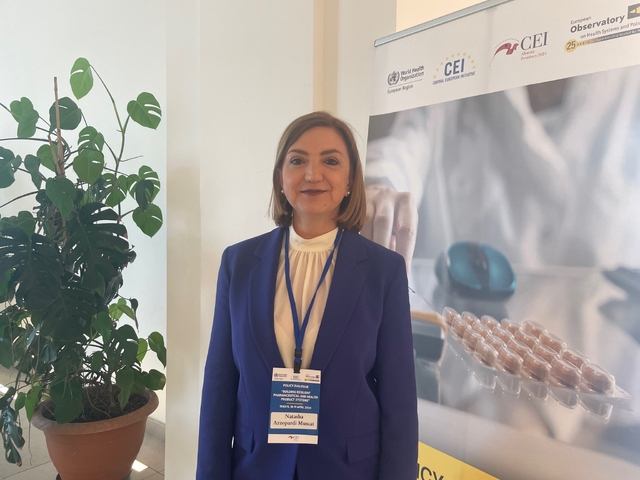
(ANSA) - TRIESTE, 18 APR - "Every person, no matter their background or circumstances, should be able to access health services and medical products when needed, without experiencing financial hardship. Without affordable access to safe, quality-assured medical products, attaining good health and well-being and Universal Health Coverage becomes a distant dream". That is what Natasha Azzopardi Muscat, Director of Country Health Policies & Systems at the World Health Organization - Regional Office for Europe, said at the plenary discussion in Trieste on the meeting organized by CEI and WHO for the policy dialogue on "Building resilient pharmaceutical and health product systems." "The reality we face today is far from ideal - she added - We are seeing unprecedented levels of medicine stockouts and shortages due to disruptions in global supply chains. Many countries in the WHO European Region, including those here today, also deal with rising medical costs. These costs create a significant budgetary strain, often restricting patient access, increasing inequalities, and increasing out-of-pocket payments. Moreover, the ongoing cost-of-living crisis and rampant European inflation worsen matters". According to the director, "This policy dialogue in Trieste aims to serve as a powerful platform for us to address these challenges collectively. Trieste has always been the bridge between Western Europe, the Western Balkans, and the eastern part of the WHO European Region". "WHO/Europe - Azzopardi Muscat then underlined - recognizes this and is working with different stakeholders through the new Access to Novel Medicines Platform (NMP) - a neutral space for patients and representatives of industry, civil society, governments, and other stakeholders - to convene and discuss solutions together, focusing on transparency, solidarity, sustainability, and novel antimicrobials." The meeting in Trieste, "under the leadership and convening power of CEI," hosted by Italy, was fruitful "to share experiences and best practices between EU countries and candidate countries, including the Western Balkans." The director remarked, "Small countries face additional challenges in accessing these medicines and medical products as well as essential medicines due to their limited capacities and geographical limitations. WHO/Europe is working with them to find solutions to these complex issues." (ANSA).
